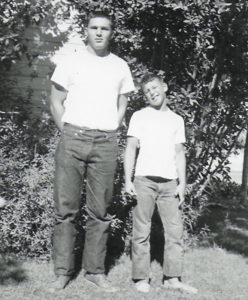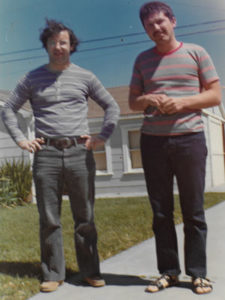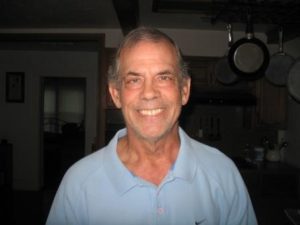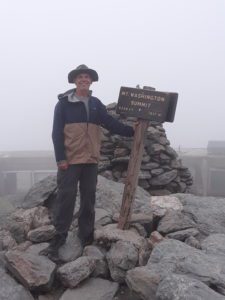Today, Feathered Quill reviewer Amy Lignor is talking with Mark M. Bello, author of Betrayal in Black (A Zachary Blake Legal Thriller Book 4).
FQ: Another stunner. My thanks, first off. Most readers wonder with a series what the author’s favorite book was? Do you have a specific favorite that you’ve written? And if so, why does that particular one stand out in your mind?
BELLO: Interesting question. The first novel was a bucket list item for me. I had no idea whether I could write one novel, let alone six. It was very satisfying to complete that first novel and get some things about the experience off my chest. That doesn't mean, though, it is my "favorite" Blake novel. Taking the headlines and crafting novels out of them has also been satisfying, especially Betrayal of Justice, which examines presidential bigotry and corruption. Betrayal in Blue is satisfying because it is the only Blake novel that did not specifically rely on a "headline" topic. And the others, Black, High and Supreme also explore serious issues of the day, cop on black shootings, school shootings, and sexual assaults of woman by powerful men. Hard to pick a favorite—not a cop out, just hard to do.
FQ: Coming from a legal background and not a writing one, what was one of the most surprising things you learned during the publishing process?
BELLO: "Surprising" was that I could do this and do it well. The publishing and marketing process has been disappointing, not surprising. Agents and publishers, for whatever reason, seem to be unwilling to consider new talent, and that has been somewhat surprising and very disappointing.
FQ: In your past litigation, were you ever part of a trial where this type of race relations was the focus? If so, how difficult is it for the attorney to keep a hold of emotions when trying to help the family left behind, like Zachary did for Sarah and the kids?
BELLO: I have handled police misconduct/brutality cases in my career. I have also handled race discrimination cases. However, I have never handled a case that was as tragic or racially charged as Betrayal in Black. As to the emotional issue, attorneys are people too! It is hard not to invest yourself emotionally into a case like the Hayes case. I don't see detachment as a strength—I think an attorney should be somewhat invested in his or her client's case. This is a delicate balance, however. The level of emotional investment should not cloud judgment when it comes to given out important, sometimes painful advice. What if you are convinced of guilt, but there is not enough evidence? What if the current offer is better than you think a jury might award? An attorney must provide sound legal and practical advice, without allowing emotions to cloud judgment.
FQ: When you look at the present day world, do you see a chance to alter the future and somehow get people to get along one day?
BELLO: I used to be very optimistic. I was proud of our country when our citizens voted overwhelmingly for our first African-American president. Since that time, however, we have seen a sharp divide, not only in our politics, but in our rhetoric and interactions. As I indicated in a previous interview about Betrayal of Justice, I have been accused by some of doing (in that novel) a hatchet job on our current president. But I wrote the novel in 2016—my fictional president is a bad guy and does some rather evil things. First and foremost, Ronald John was an Islamophobic bigot who embraced white supremacy. Did our current president mimic my fictional president's behavior in office? I will leave it to readers to draw their own conclusions. If they conclude he did, is this on him or on me? Is he responsible or am I?
FQ: How long does it usually take you to write a book?
BELLO: This has varied. The best answer I can give you is several months. Betrayal of Faith took years to write. I started Betrayal of Justice during the summer of 2016 and finished it before election day. The rest of my novels took "several months." It depends on what spare time I Have and what is inspiring me at any given time.
FQ: If you had to choose, what is the one thing a story must have above all else to make it a great story? (Does the hero/heroine need to be beloved by the readers; is the plot, itself, more important to be unique, etc.?)
BELLO: Interesting characters and a compelling story. Obviously, I like David v. Goliath stories and I like to extract these stories from current events. I also believe in character development to keep readers interested. Zachary Blake has come a long way and the client protagonists in each of my novels finish their cases (and interactions with Zack Blake) as vastly different people than when they were first introduced. For me, there also has to be a compelling Goliath—a classic confrontation between good and evil.
FQ: What would you say is your interesting writing quirk?
BELLO: I think I just answered that in the last question. I am a pro-justice, advance the interests of the "little guy" kind of author. If I can nail a powerful evil doer with my slingshot (or at least call attention to the issue in an entertaining way), and the readers respond, that is very satisfying.
FQ: Describe one of those perfect, one-in-a-million “Mark Bello Writing Days.” Do you have a certain system you go through, a special location where you write, music playing in the background? And, is it difficult to have those “perfect” days; one where twenty or thirty pages pour out and you just can’t stop?
BELLO: I have certainly had good days and bad days. However, I can't really pinpoint this for you. It is more about whether an issue or story inspires me and whether there is solid research information about a particular topic.
FQ: What’s next? And how long of a wait?
BELLO: Betrayal High had been completed and was due to be released at the end of this month. The Corona Virus got in the way and we have delayed the launch. Any suggestions? I have also completed Supreme Betrayal, which should be released between 3-6 months after High (it was originally scheduled for a Thanksgiving release date). I am currently working on my seventh Zachary Blake novel, with no end in sight. Is this what "writers' block" feels like?
FQ: We’ve interviewed you a lot lately, so I want to give you this space: What is something that YOU want readers to know about you, your books, career, future, etc.?
BELLO: These last four years have been a rollercoaster. The issues I write about are extremely important. How we treat one another, the compassion and understanding we have for one another, our willingness to listen to and respect various points of view are important. We are a very divided country right now. Is the government acting in the best interests of all of our citizens or just a chosen few? If not, what can we do about it? What can the legal system due to help?
The justice system is supposed to be the great equalizer—we are all equal in the eyes of the law, right? Does that maxim still hold true in America today? I would suggest that the answer depends on the issue. As to criminal justice, the system seems stacked against minorities and/or people without significant resources to defend themselves. As to civil justice (my expertise), the system favors the Goliaths of the world, but David can emerge victorious. The justice system produces compelling, 'ripped from the headlines' stories, and I got a real kick out of them in my law practice.
I hope the readers of my Zachary Blake legal thriller series get a sense of how these cases and experiences feel for real lawyers and clients. I also hope that these novels will help people understand the justice system better, experience, in a fictional setting, what real lawyers might go through on a day-to day basis. I would like to think that these novels educate people. If they do, that is extremely gratifying. My thanks to Feathered Quill for the opportunity to introduce myself and my books to its audience. For more information about me and my work, please visit www.markmbello.com.














